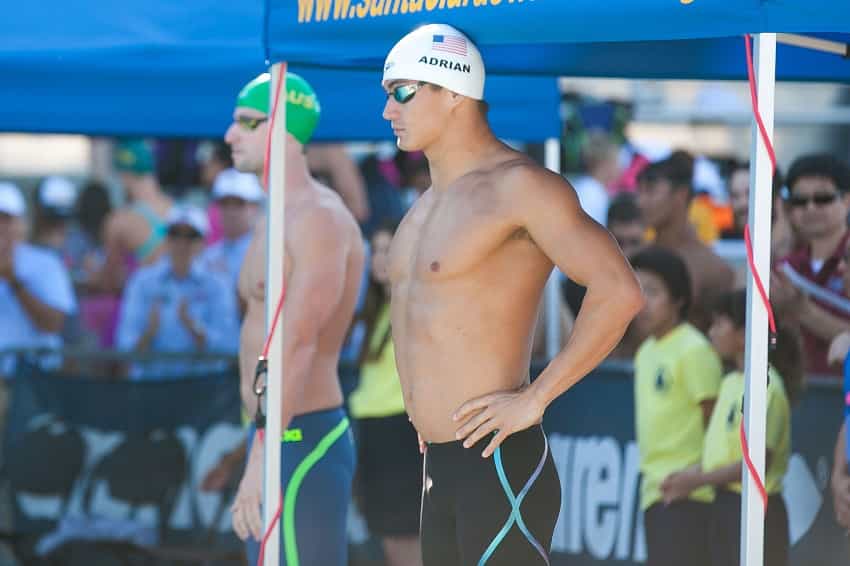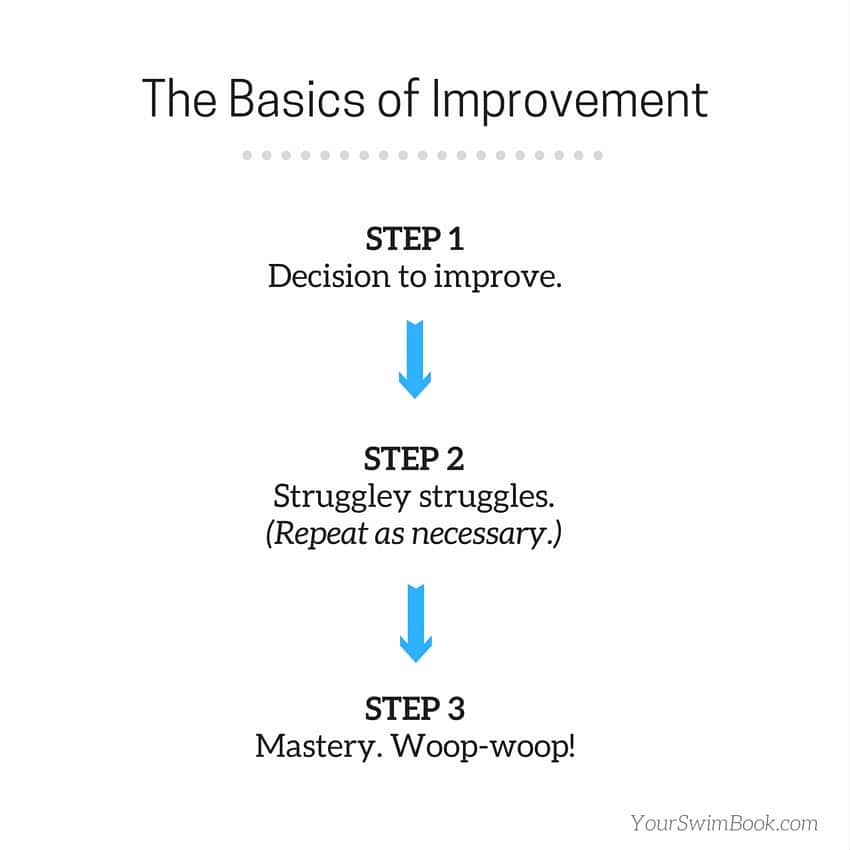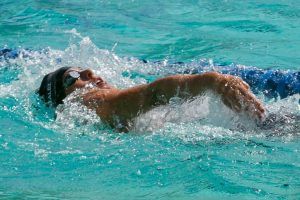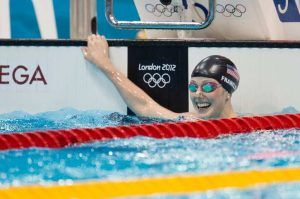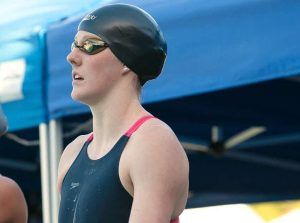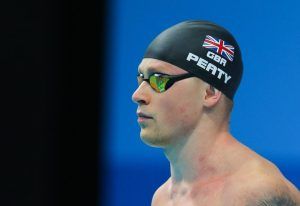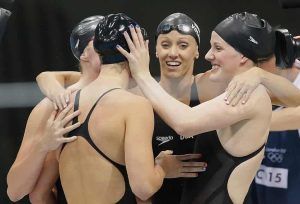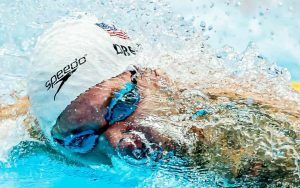It’s not technique. Not your coach. Not the pool you train in. It’s your willingness to embrace the daily struggle of improvement in the water. Here is why learning to love resistance and struggle will make you the best swimmer you can be.
Improvement happens at the point where we meet resistance.
- It’s that descending interval that we just barely have enough time to gasp a quick breath before pushing off again.
- The final few reps of the set where we are supposed to hold on for dear life to race pace.
- It’s showing up for early morning practice at 5 in the morning in the dead of winter.
- It’s showing up even when there is no guarantee that things will get better.
Resistance and struggle is a fundamental and unavoidable component of getting better. Just as critical as your bathing suit, if not more so. After all, your ability to meet struggle head on dictates whether you get better or get the same.
Here’s how to embrace the struggles and become a faster and better swimmer as a result.
REFRAME RESISTANCE AS OPPORTUNITY.
When things get hard we tend to start thinking about the bad stuff that *might*–but rarely ever does—happen. If we come up short we fear that we won’t be able to recover from it. Or that our teammates will make fun of us if we don’t swim fast enough. Or that people will judge or care.
As a result of allowing others to dictate how much effort we put towards our goals we often end up apologizing for the goals we have in the pool.
Instead of viewing those moments in terms of fearful outcomes (“What will my teammates think of me if I fail?”) reframe it as an opportunity for growth (“How will this challenge make me a better swimmer?”).
IMPROVEMENT DOESN’T COME WITHOUT STRUGGLE.
Struggle is inherently struggley. It’s unpleasant. Not always very pretty. And so we avoid it. Nobody likes having a hard time with something. Not being good at a drill, stroke, or being a bad kicker isn’t outwardly pleasurable.
But it’s a necessary price of getting better. It’s a fundamental part of improvement.
It’s a cycle that you should be familiar with: you want to do something, you struggle to learn it, and you eventually master it.
Whether it’s a drill, an interval, a new group—the process is the same.
Sure, it would be nice if we could get better at something without having to be uncomfortable or be stretched. It would be fun to skip the second step in the little improvement cycle. But that’s wishful thinking. Understand and remember that struggle is essential to getting faster in the water.
WELCOME AND SEEK STRUGGLEY MOMENTS.
One of my favorite reader-submitted questions was from a young swimmer who was stressed out because she had just gotten leveled-up a group, and now she was the slowest athlete in the lane. I countered that this was a blessing—being surrounded by faster swimmers would only encourage her to become a better swimmer if she chose to welcome the challenge.
When we actively go out of our way to challenge ourselves we are repeatedly inflicting stressors that encourage improvement and increases the limits of what we think is possible.
STRUGGLEY MOMENTS BUILD RESILIENCE.
When we learn to welcome trying circumstances into our swimming we are also charging up our ability to be more resilient.
Resilience is a defining character trait of champions.
- It’s what separates the swimmer who has a bad swim at the beginning of the meet and allows it to ruin their whole weekend from the athlete who bounces and back and crushes a best time later that evening.
- It’s what convinces one swimmer to keep working hard at the end of a really hard set while the next one succumbs to thoughts of doubt and gives up.
Resilience is something we learn from experience. Some swimmers may appear like they are naturally mentally tough, but there is experience and choices they’ve made that are backstopping that confidence and trust in themselves.
THE TAKEAWAY
I get it–hard work is, well, hard. It’s filled with moments of self-doubt, of setbacks, of moments where you feel like your best efforts are going unrewarded.
But if you are serious about wanting to get better in the pool, regardless of how ambitious you are with your goals, you need to open yourself up to those moments of discomfort and struggle.
It’s exactly there–in the chasm between what you know you can do and you think you can do that improvement and faster swimming is developed.
See Also
- When Things Go Sideways, Top Swimmers Rely on Mental Training. The fastest swimmers are the most resilient swimmers. Here’s how spending a few minutes a day getting your mind right can help you stay calm and focused in the face of adversity.
- At What Age Should Swimmers Start Mental Training? Coaches and elite swimmers talk about how the difference is often mental when it comes to performance. Here are some thoughts and suggestions for when swimmers should start dialing in the mental side of the sport.

